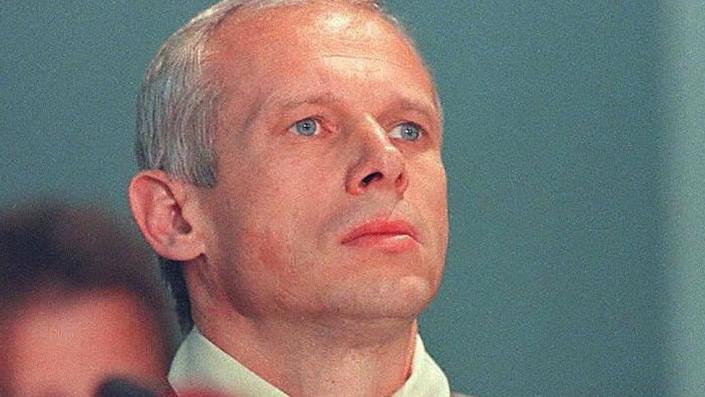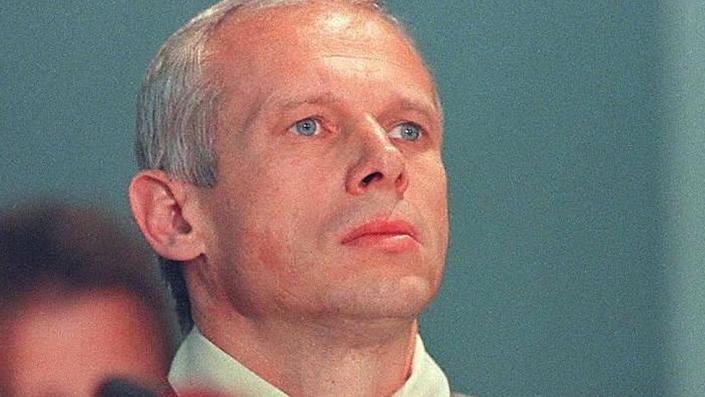
The far-right gunman who killed South Africa’s anti-apartheid hero Chris Hani has been stabbed in prison, officials say.
The stabbing of Janusz Walus comes days before he was due to be released on parole after nearly 30 years in jail.
He was allegedly stabbed by another prisoner and is in a stable condition.
Walus, 69, shot Mr Hani in 1993 in a failed attempt to derail South Africa’s transition from white-minority rule to democratic rule.
The killing still evokes deep emotions in South Africa. Mr Hani was regarded as the most popular politician after anti-apartheid icon Nelson Mandela.
South Africa’s government and Mr Hani’s widow Limpho vigorously opposed Walus’s attempts to gain his freedom.
But in a ruling on 21 November, South Africa’s highest court ordered his release within 10 days, saying the justice minister’s refusal to grant him parole was “irrational”.
In a brief statement, the prison department said it could confirm the “unfortunate stabbing incident” involving Walus.
Healthcare officials were providing him with the “necessary care”, it added.
The BBC understands his attacker tried to stab him in the heart.
The attack came after a monument in honour of Mr Hani was vandalised on Saturday.
The governing African National Congress (ANC) and its allies described the incident as a “provocative attack”, and “tantamount to a continuation of Chris Hani’s assassination in the grave”.
The vandalism should be seen in the context of the court’s ruling, which had “pleased unrepentant apartheid perpetrators”, the ANC said, in a statement issued jointly with the South African Communist Party (SACP) and the Congress of South African Trade Unions (Cosatu).
Walus killed Mr Hani as he picked up the newspapers outside his home in April 1993 by shooting him at point-blank range.
Walus was arrested and sentenced to death. The sentence was commuted to life after South Africa abolished the death penalty.
The 50-year-old anti-apartheid fighter was the leader of the SACP and a senior member of the ANC’s military wing.
Walus is a Polish immigrant whose South African citizenship was revoked in 2017.
Some South Africans have called for his deportation to prevent civil unrest.
However, the government has ruled it out, saying he would serve his parole in South Africa.
White-minority rule in South Africa ended in 1994, with Mr Mandela becoming the country’s first black president.




